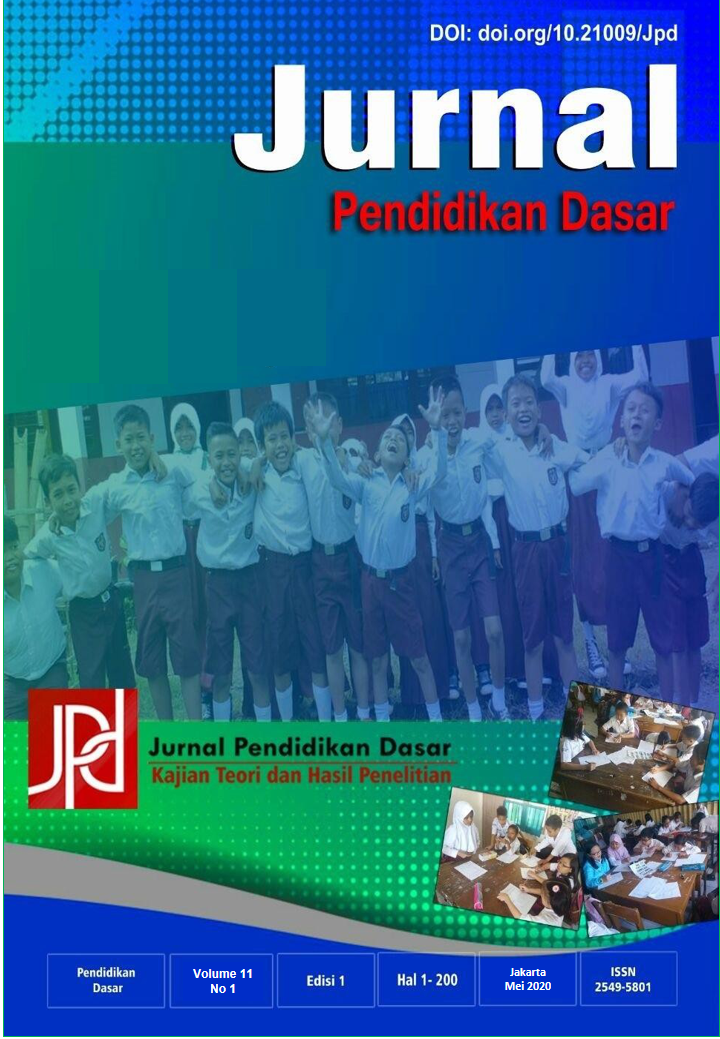EFEKTIVITAS PEMBELAJARAN JARAK JAUH TERHADAP PEMBELAJARAN SISWA DI SDIT CENDEKIA PURWAKARTA
DOI:
https://doi.org/10.21009/jpd.v11i1.15347Keywords:
Pembelajaran Siswa, Pembelajaran Jarak JauhAbstract
Since March 2020 all education units in Indonesia have implemented the Home Study, or Distance Learning (PJJ) program, precisely since corona virus disease or Covid-19 was declared to enter Indonesia. The Regent and the Head of the Purwakarta Regency Education Office readily gave orders to all students to study at home and to apply Distance Learning starting on March 16, 2020 - May 29, 2020. The PJJ was implemented in order to prevent the spread of Covid-19 Virus so that it would not be spread throughout Community in Purwakarta. The purpose of this study is to describe the effectiveness of Distance Learning for the Students of SD Scholar Purwakarta. This study uses qualitative research with a descriptive qualitative design (case study). Data collection techniques using a questionnaire / questionnaire online using google form. Distance learning with several methods is quite effective to do. This can be seen from the results of the questionnaire given to respondents from the 6 questions raised by almost all the average respondents support and assess that distance learning is effectively done to students.
References
Hadari Nawawi, H. Murti Martini, (1996). Penelitian Terapan. Yogyakarta: Gajahmada University Press.
Hermawan, (1995). Pengantar Metodologi penelitian. Jakarta: PT Gramedia Pustaka.
http://makalahpendidikanislamlengkap.blogspot.com/2015/06/model-pembelajaran-jarak-jauh.html
John W Creswell, (2016). Pendekatan Metode Kualitatif, Kuantitatif, dan Campuran. Yogyakarta: Pustaka Pelajar.
Lexi J Moleong, (2011). Metode penelitian kualitatif. Bandung: Remaja Rosdakarya.
Rusman, Kurniawan, D., & Riyana, C. 2013. Pembelajaran Berbasis Teknologi Informasi dan Komunikasi: Mengembangkan Profesionalitas Guru. Jakarta: Rajawali Pers.
Downloads
Published
How to Cite
Issue
Section
License
Jurnal Pendidikan Dasar





















